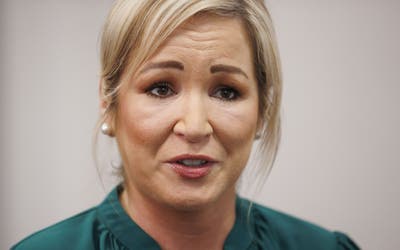When you think of NATO, the first thought that usually pops into your head is a serious gathering focused on global peace and security.
So, when Prince Harry made an appearance at a NATO event, it felt more like a celebrity showing up at a serious meeting than a significant policy moment.
Oddly enough, the Invictus Games Foundation, which Harry champions, hasn’t mentioned this event on their website.
In fact, NATO’s own coverage was limited to just one still photo, lacking any video documentation.
Adding to the intrigue, Dominic Reid, the former CEO of the Invictus Games Foundation, was reportedly present at the event despite having resigned back in July.
This raises some questions: Is Reid still involved with the IGF, perhaps managing things from the sidelines?
Or was his presence merely a remnant of a prior invitation?
If the IGF continues to list Reid as CEO, it certainly casts shadows on the transparency and governance of the organization, especially regarding donor contributions.
The optics surrounding this whole situation could use some polishing.
With Harry and Meghan’s high-profile lifestyle, complete with designer outfits and Meghan’s Pajama Day ensemble, it’s tough to see a serious commitment to veterans’ causes.
One can almost hear NATO officials sighing, perhaps wishing this appearance had stayed behind closed doors.
Historically, the Invictus Games prided itself on corporate sponsorships, claiming that public donations weren’t necessary.
However, the Foundation now seems to be seeking funding from the public, leaving many wondering where exactly this money is going.
Is it covering athletes’ travel expenses to the Games, or is it being funneled elsewhere?
Then there’s the question of Reid’s presence at NATO.
Was he there for a farewell tour, a brief cameo, or just a scheduling oversight?
His resignation was viewed as a strategic effort to usher in new leadership, yet the timing raised eyebrows.
Some insiders speculate that the controversy surrounding Harry’s acceptance of the Pat Tillman Award may have influenced Reid’s departure.
Critics have argued that Harry’s acceptance of the award somewhat tarnished its honor, a sentiment that reportedly contributed to Reid’s exit from the IGF.
Despite this, Harry praised Reid for his role in elevating the Invictus Games to a global stage.
Yet seeing Reid back at a NATO event after stepping down has left many questioning the dynamics at play.
It’s worth noting that NATO’s recent gathering didn’t appear to be one of its most crucial meetings.
Insiders suggested it resembled more of an informal gathering of junior officials than a congregation of top decision-makers.
In military circles, deputies often meet more frequently than their higher-ups to ensure regular updates without requiring the presence of senior leaders.
For any veteran organization with the right connections, securing a spot on NATO’s agenda is achievable, especially if you’re a former royal with a prominent public image.
Prince Harry’s affiliation with the UK, which contributes significantly to NATO’s budget, certainly doesn’t hurt his chances of gaining access.
Returning to Dominic Reid, his resignation was framed as amicable and strategic, aimed at bringing fresh vision to the IGF.
However, his reappearance at NATO has raised suspicions about whether he remains connected to the IGF in some unofficial capacity.
Critics argue that the mission of the IGF seems to have shifted, with Harry’s personal brand increasingly intertwined with the Games.
As the dust settles, there’s a growing sentiment within the veteran community that the next IGF CEO should prioritize rehabilitative sports for wounded veterans over glitzy red carpet appearances.
Some voices have even suggested that Meghan should keep a lower profile at future IGF events to ensure that the charity’s true mission takes center stage, rather than overshadowing it with celebrity allure.
Related Stories

